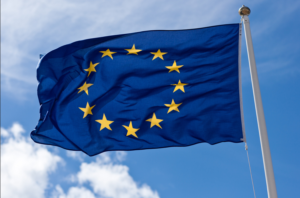EU submission doomed to fail for the same old reasons.
Last week, a submission made to the International Criminal Court (ICC) called for the EU to be prosecuted for their migration policy of deterrence in the Mediterranean Sea.

According to prominent humanitarian lawyer Guy Goodwin-Gill, this submission and others like it, including one made against Australia’s offshore detainment programs for refugees, hinge upon the ICC accepting the case as within its jurisdiction.
The submission provides evidence from 2014-19 that the EU “intended to sacrifice the lives of migrants in distress at sea, with the sole objective of dissuading others in similar situations from seeking safe haven in Europe”.
This period marked a shift from the search-and-rescue methodology of earlier years, to a preventative effort made to contain refugees in Libya, where many of the refugees begin their voyage by sea to Europe.
The EU plays a role in coordinating the Libyan coast-guard from helicopters and planes patrolling from the air.
Known human rights abuses against such individuals in Libya, however, has led the authors of the submission to label key EU nations as complicit in their detainment in concentration-camp-like conditions.
However, as Mr Goodwin-Gill explained to iMPACT this week, the lack of a suitable institution to prosecute infringements of refugee rights is a key factor holding back reform both abroad and in Australia especially.
“The attempt is to find a legal basis on which to hold policy makers, military officers and the like responsible in law for the injurious consequences of their policies. The difficulty is to find the legal peg on which to hang it,” he said.
“There is a provision in article 7 in the statute, that it is for use in the context of an armed attack on a civilian population. That would seem to be the sticking point in this case. The ICC may not have jurisdiction as it stretches the definition somewhat to encompass refugee policy,” Mr Goodwin-Gill said.
The lack of a specialised international court to prosecute migration cases is considered to be a crucial element holding back the protection of refugee rights around the world.
The current submission is not the only example of this.
In 2017, the Global Legal Action Network (Glan) and the Stanford International Human Rights Clinic made a submission detailing the “harrowing practices of the Australian state and corporations towards asylum seekers”.
Specifically, it spoke against and provided evidence for inhumane detention conditions on Manus and Nauru. This account follows an attempt by independent federal member for Clark Andrew Wilkie to bring the ICC’s attention to Australia.
Neither, however, have resulted in a prosecution.
Mr Goodwin-Gill said Europe is ahead of Australia in remedying this gap in the legal framework.
“In Europe, they have a system of human rights protection that has achieved far more than in Australia, we don’t have a machine for human rights protection, and it doesn’t look like we are going to get that in the near future,” he said.
“The European laws do require that in the treatment of refugees, certain standards are upheld and the individuals at fault are held responsible. It can, however, take time for that to happen. Here there is no rule of law, the government can get away with doing more or less what it wants up to a point,” Mr Goodwin-Gill said.
The ICC has made no official statement on the submissions.












